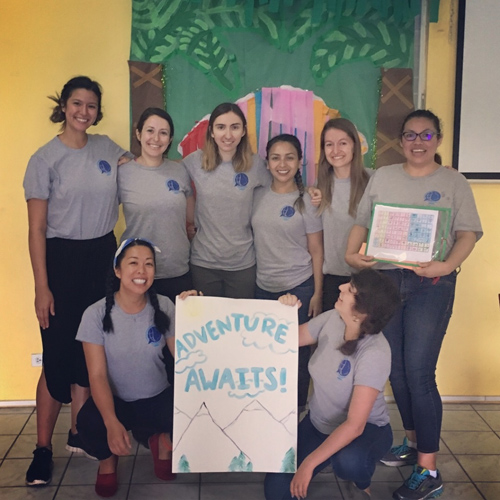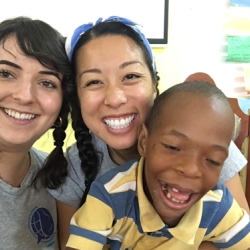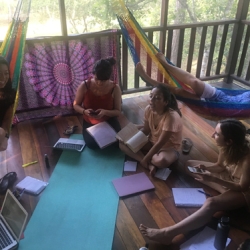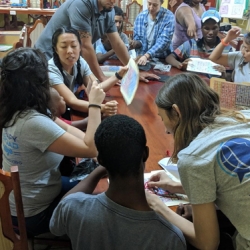Transformative Experiences - Belize

Belize City, Belize - In partnership with Therapy Abroad, eight San Francisco State University students provided support for an AAC Summer learning Camp in Belize City. The experience provided opportunities to collaborate with other disciplines, educate clients and provide parent and caregiver training. The camp highlighted the importance of interdisciplinary involvement by the total health care team and its relationship to effective patient care.
The summer camp included students with varying developmental disabilities who ranged in age from 8-19 years.The students all attended a school for students with special needs in Belize City. Prior to the start of camp each student was identified as having complex communication needs and was provided with a core board in both English and Belizean Kriol.
Thedaily schedule consisted of fine motor activities, read alouds, STEM curriculum, interactive games, and drama activities. All the activities were approached with the lens of providing communicative support for students with complex communication needs. The activities were dispersed among the SF State students; each was responsible for planning and executing one activity a day. During the activities, each clinician was paired with a student to provide support, scaffolding and modeling on a core board.

"This was the first AAC camp that they (Therapy Abroad) ever created in another country and it was still like a pilot. We learned to be resilient and to be adaptable. I think it taught me how to think on my feet and to think about what I can do and how I can apply AAC with the limited resources that I have."

"It was really challenging and in a lot of ways, being in a foreign country and adapting to a new culture. It was a great opportunity to really collaborate with the other women in my cohort and developed a strong bond throughout the experience"

"I learned to adapt assessment materials and activities to the student’s capacities and culture. I was also able to implement core and fringe word vocabularies in inclusive settings and activities taking the student’s culture and language into consideration. Finally I learned how sensory, motor, cognitive, social abilities, culture, and language of a student affects what method of AAC we use and implement."